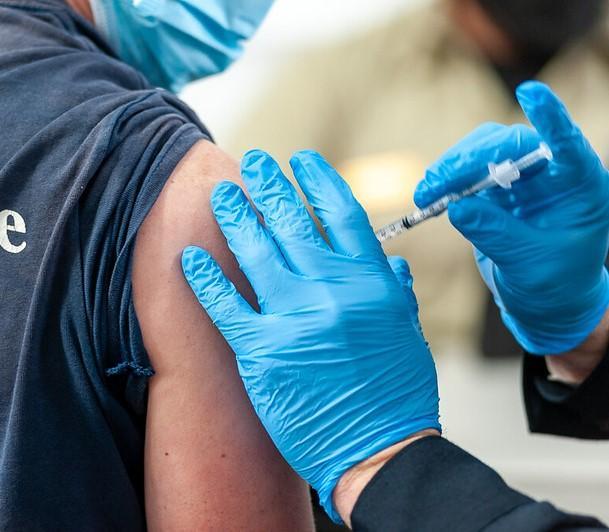COVID-19 and influenza vaccines can be safety administered together, with no significant drop in antibody response, according to a study led by Sheba Medical Center researchers in Israel.
The research, published today in JAMA Network Open, involved healthcare workers (HCWs) who received Abbott's Influvac Tetra (four-strain) flu vaccine, the bivalent (two-strain) COVID-19 booster from Pfizer/BioNTech, or both (one in each arm), from September 2022 to January 2023. The team collected blood samples for antibody testing and sent online symptom questionnaires up to 62 days after vaccination.
The safety analysis included 588 participants, 85 of whom received the COVID-19 vaccine alone (median age, 71 years; 66% women). Another 357 participants received only the flu vaccine (median age, 55 years; 79% women), and 146 received both (median age, 61 years; 55% women).
The immunogenicity analysis included 151 participants, 74 of whom received only the COVID-19 vaccine (median age, 67 years; 61% women). The remaining 77 participants received both vaccines (median age, 60 years; 55% women).
COVID-19 and flu vaccines used to be administered separately, but "during the 2022 to 2023 influenza season the US Centers for Disease Control and Prevention and other organizations recommended coadministration of these vaccines, aiming to reduce the burden on the health care system and increase adherence to vaccination," the study authors wrote.
Coadministration can improve uptake
The incidence of systemic reactions in participants who received only the COVID-19 vaccine was 27.4%, while it was 12.7% in flu-only vaccinees, and 27.6% in those who received both. Relative to the COVID-19 vaccination–alone group, the risk of systemic symptoms was lower in the flu vaccine-only group (odds ratio [OR], 0.17) but comparable in those who received both (OR, 0.82).
Postvaccination anti-spike immunoglobulin G (IgG) antibody geometric mean titers (GMTs) in the coadministration group were estimated to be 0.84 times lower than in COVID-19–alone recipients. During the 60-day follow-up period in the immunogenicity group, no participants tested positive for COVID-19.
The IgG response to vaccination does not necessarily correlate with reduced infectivity of vaccinated HCWs.
"Findings from previous immunogenicity and correlates of protection studies suggest that changes in IgG titers to such an extent did not greatly impact vaccine effectiveness, vaccine effectiveness against substantially symptomatic disease, or a SARS-CoV-2 diagnosis risk," the researchers wrote.
"However, the rationale behind vaccinating HCWs with booster doses against COVID-19 also takes into account the safety of the patients they are treating, and the IgG response to vaccination does not necessarily correlate with reduced infectivity of vaccinated HCWs," they added.
The authors concluded that coadministration of the vaccines is acceptable policy to increase adherence, "as adherence to a single clinic visit will surely be greater than that which can be achieved for 2 separate visits, especially in more vulnerable populations (eg, the elderly)," they wrote. "Coadministration of vaccines is often advocated when disadvantages are marginal or negligible."





















